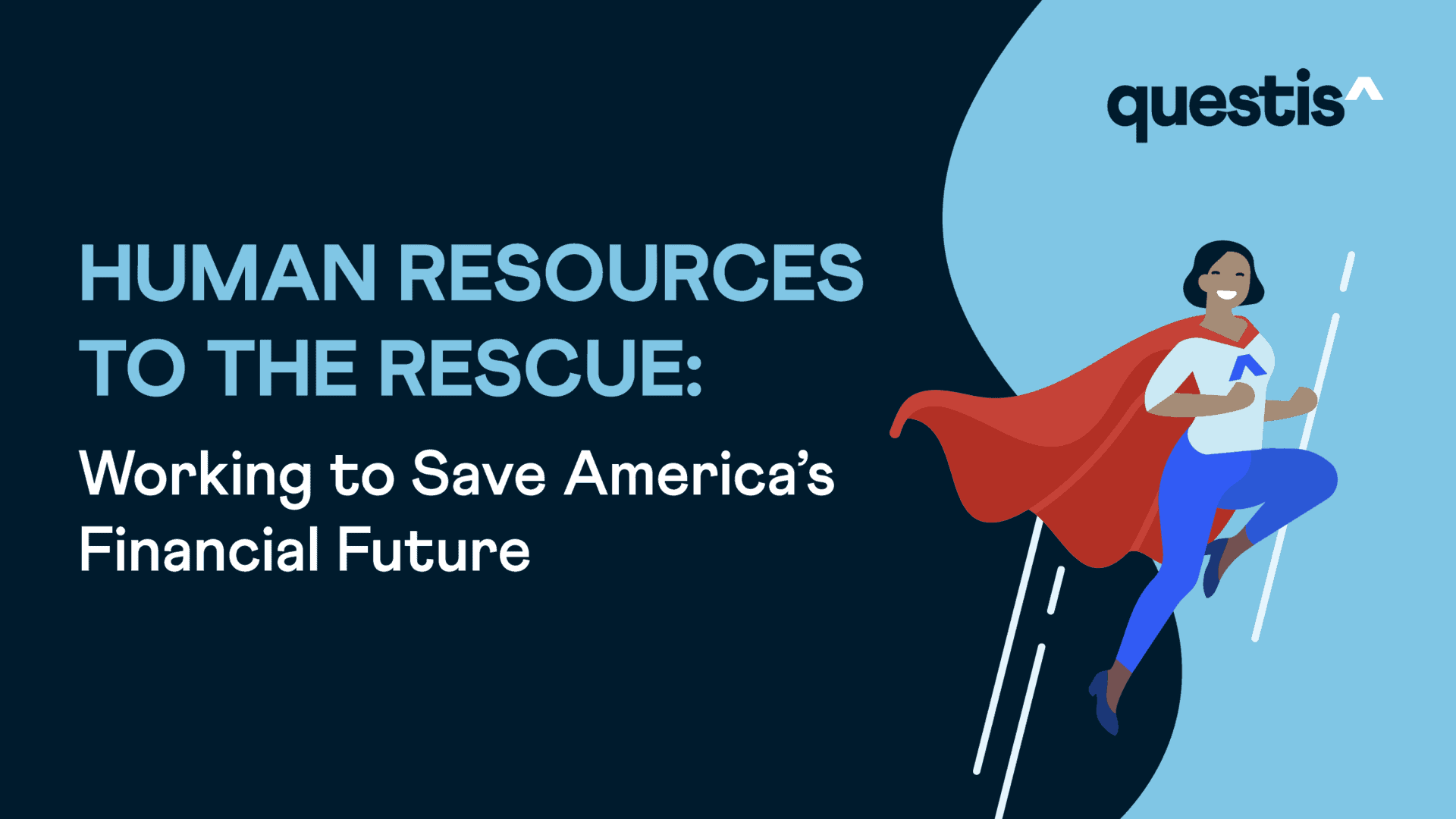HR teams are the unsung heroes and heroines of the workplace— tasked with the duty of developing and maintaining corporate culture while businesses grow, pivot and adapt to the rapidly changing economic landscape. Workplace policies created and implemented by HR have a lasting, far-reaching impact on employees and the economy as a whole.
The Problem: The Current Financial (Education) Crisis
Statistics show that the American workforce is in trouble financially—and the resulting financial stress affects employees way beyond their dreams to retire comfortably after a long, fruitful career.
The reality that more than 56% of Americans live paycheck to paycheck signals that there has never been a better time for personal finance initiatives. While stagnant wages against a backdrop of rising cost of living and inflation are partially to blame, rampant overspending and accrued debt for day-to-day expenses, education or assets also plays an important role. Even though modern checking accounts do not let account holders spend beyond their means, credit card and home equity lines of credit can make it all the easier. In 2022, total U.S. household debt is $16.5 trillion, and credit card balances rose to their highest levels in over 20 years.
The current financial tools available to the average American worker are not designed to help with the basic first steps needed to take charge in improving financial health. First and foremost, today’s workers do not have sufficient emergency savings, which means that they are not prepared for expenses such as unexpected medical bills or car problems. Unfortunately, 56% of Americans could not cover a $1,000 emergency expense with their available savings, producing financial insecurity and significant personal stress—ultimately impacting productivity in the workplace.
Financial stress extends beyond immediate concerns related to living expenses. Most employees consider retirement as a serious financial concern and do not feel adequately prepared. Many employees simply aren’t ready or well enough informed to take advantage of retirement programs, especially when bills are left unpaid. In a recent report, 80% of workers aged 50-64 showed significant pessimism when it came to how well their savings strategies are performing, citing the lack of financial assets and know-how necessary for a confident retirement. Even worse, according to the most recent Economic Well-Being of U.S. Households report by the Federal Reserve, 26% of workers do not have retirement savings.
With a lack of savings and negativity towards retirement, many employees lack the personal financial knowledge to determine how much to save, how to properly use credit, how to get out of debt, and how to manage any remaining income. Guidance on these topics is not usually offered as an employment benefit… and with rising inflation, economic uncertainty, and a more meaningful consideration of retirement, this support is more important now than ever before.
The Solution: A Hero Fit to Step Up & Safeguard America’s Financial Future
The future is almost impossible to predict… but there are ways to prepare. Human Resource teams are seasoned planning professionals.
In order for this problem to be fixed, a Hero needs to step up. A Hero who has it in their interest to help the American workforce. A Hero who has the best tools and knowledge of benefits programs for hard-working American employees. A Hero who has been overlooked in their capacity to help.
…and that Hero is Human Resources.

HR has frequently been thought of as an office that handles essential personnel functions, deals with compliance, and takes charge of the recruitment of new employees. As the modern HR department emerges, it is now evident that it has the keys to a solution that could impact the entire country and economy as a whole. The solution comes through HR’s ability to allocate and expand employee benefits, HR’s need for happy and healthy employees, and the ability of HR to impact every worker at every level in the workplace.
While Human Resources departments will retain their role in collective bargaining processes between employees and employers for decades to come, key questions about the feasibility of expanding their role as financial educators in the workplace remain:
- Where does personal finance education fit in with the roles and responsibilities of HR?
- With a growing list of roles and responsibilities, do HR teams have the capacity to take on personal finance education initiatives?
- And if so, how should they be implemented in the workplace?
Through their duty to cultivate a healthy work environment, modern Human Resource teams seek out and vet new employee benefits, training and certification training programs which have increasingly included personal finance education. Widespread financial wellness benefits adoption at American corporations can mean the difference between a country that struggles to support its workers and retirees, and one that can boast strong finances for everyone.
Plus, Human Resources professionals have a special interest in providing financial wellness to workers, because their goals are furthered by the effects of good financial health in the workforce. Personal finances are a major driver of employee engagement and have a direct impact on performance. Employees that don’t have financial stress are better apt to focus on efficiency, and are more creative and productive, while an employee worried about making this month’s rent is far less likely to be giving their all at work and focused on surviving another stressful day. Improving the financial wellness of employees is not expensive for employers and can generate significant savings: according to the Consumer Financial Protection Bureau, every $1 spent by an employer on the Financial Wellness of its employees, has as much as a $3 return. That’s right, a potential 3 to 1 return on investment AND further savings through reduced absenteeism, presenteeism, and turnover.
Human Resources can Create a Strong Financial Future
Human Resource teams have an extraordinary chance to change the financial game for many American households. By offering comprehensive, easy-to-use financial wellness programs, HR can help staff members improve their personal finances and equip them with the tools needed to meet life’s economic demands. Such wellness programs provide guidance through every level of financial need and help reduce immediate financial worries and stress in the workplace, empowering employees with the ability to improve today as well as look forward to tomorrow through a well-funded and well-planned retirement. In return, HR and the company providing the financial wellness program stand to benefit from the results of a financially healthier workforce.
If current financial trends such as high inflation and economic uncertainty continue, the average American worker will continue to struggle with day-to-day expenses, jeopardizing their ability to comfortably. As with many things in life, increased debt, leaner retirements, and continued financial stress cannot be cured overnight, but there are solutions…and heroes to help.
Human Resources has a unique opportunity to supply the tools needed to achieve financial security for millions of hard-working Americans. By offering relevant, personalized financial wellness solutions today, HR can create a better future through personal finance education and wellness in which employees have less stress, more control over their finances and better financial habits.
By working to save America’s financial future through bringing financial wellness into the workplace, Human Resources have the capacity to be the hero all workers need and HR can come to the rescue of America’s workers.
